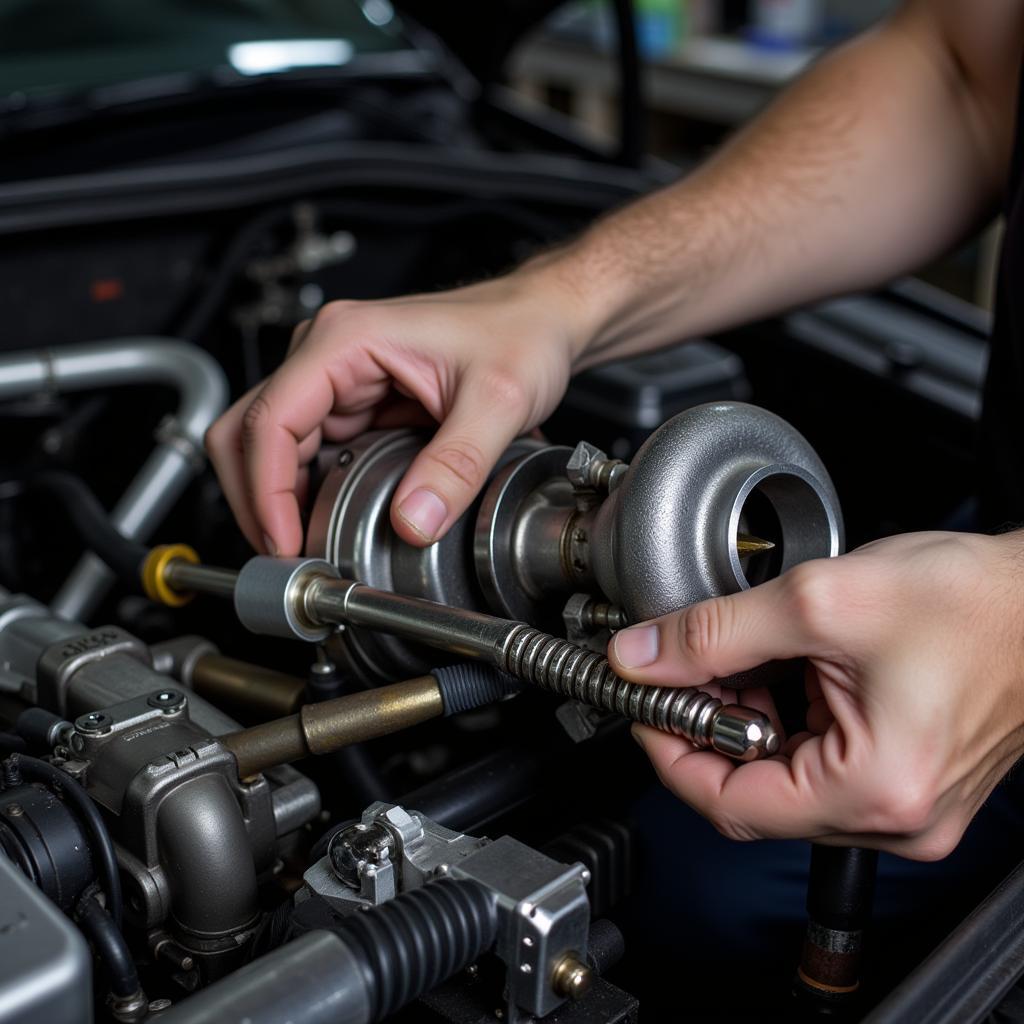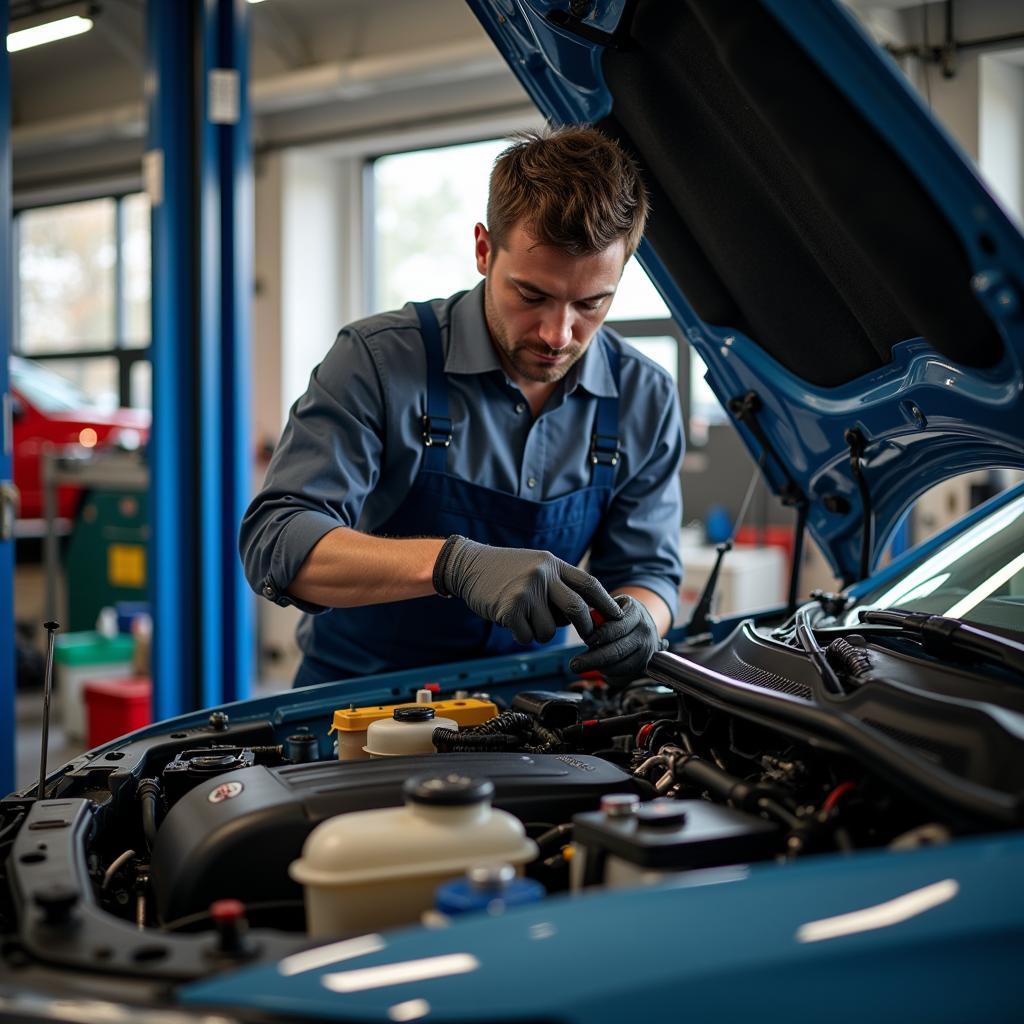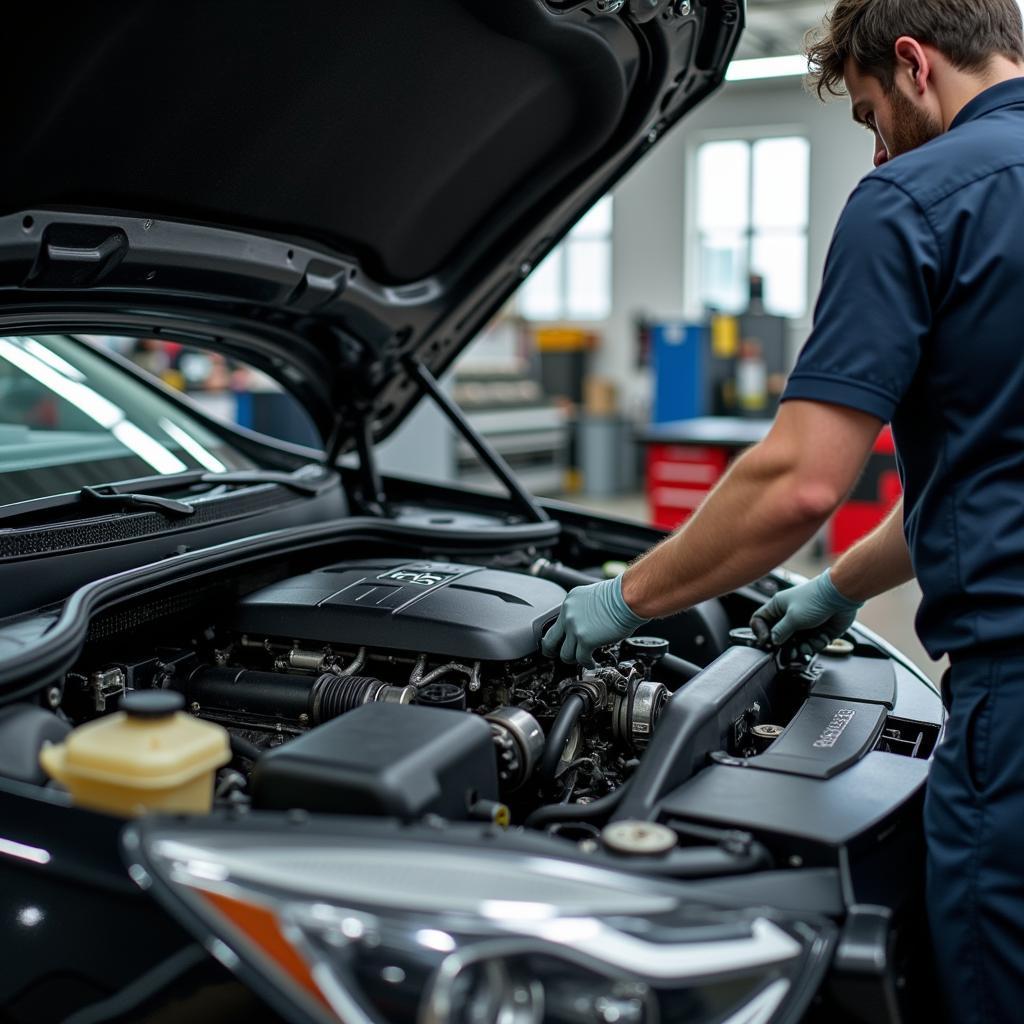How to Service Car Turbo: A Comprehensive Guide
Understanding how to service a car turbo is crucial for maintaining optimal engine performance and longevity. Turbochargers, while incredibly robust, are complex systems that require specialized care. Neglecting their maintenance can lead to decreased performance, increased fuel consumption, and ultimately, costly repairs.
Understanding Your Car Turbo
Before delving into the specifics of servicing, it’s important to grasp the basics of how a turbocharger operates. Essentially, a turbocharger utilizes exhaust gases to spin a turbine, which in turn drives a compressor. This compressor forces more air into the engine, resulting in increased power output.
Signs Your Turbo Needs Attention
Identifying early warning signs of a struggling turbocharger can save you significant trouble down the line. Here are some telltale signs:
- Reduced Power: A noticeable decrease in engine power, often referred to as “turbo lag,” can indicate a problem with your turbocharger.
- Unusual Noises: Whistling, whining, or grinding noises emanating from the engine bay, particularly during acceleration, could signify a failing turbo.
- Excessive Exhaust Smoke: Blue smoke suggests burning oil, which could be entering the combustion chamber due to a faulty turbocharger seal.
- Check Engine Light: While not exclusive to turbo problems, an illuminated check engine light, especially when accompanied by other symptoms, warrants an immediate inspection.
Servicing Your Car Turbo
Servicing a car turbo generally involves a combination of inspection, cleaning, and replacement of specific components.
Inspection
A thorough inspection is the first step in any turbocharger service. This involves:
- Checking for Leaks: Inspect all hoses and connections for any signs of leaks or damage.
- Examining the Compressor Wheel: Ensure the compressor wheel spins freely and isn’t damaged.
- Inspecting the Turbine Housing: Look for cracks, warping, or other damage to the turbine housing.
Cleaning
Over time, carbon buildup can accumulate on critical turbocharger components, hindering performance. Cleaning typically involves:
- Removing Carbon Deposits: Carefully clean the compressor wheel, turbine housing, and other affected areas using specialized cleaners.
- Cleaning Oil and Coolant Lines: Ensure these lines are free from obstructions to maintain proper lubrication and cooling.
Component Replacement
Certain turbocharger components are subject to wear and tear and may require replacement during service. These include:
- Air Filter: A clogged air filter restricts airflow to the turbocharger, impacting performance. Replace regularly as recommended by your vehicle manufacturer.
- Oil and Coolant: Regularly change your engine oil and coolant to ensure optimal turbocharger lubrication and cooling.
- Turbocharger Seals: Worn or damaged seals can lead to oil leaks and reduced turbo efficiency.
DIY vs. Professional Service
While some routine maintenance tasks, like air filter replacement, can be performed by knowledgeable individuals, servicing a car turbo generally requires specialized tools and expertise. For comprehensive and reliable service, seeking professional assistance from a qualified mechanic is highly recommended.
Expert Insights
“Modern turbochargers are marvels of engineering,” states Michael Thompson, a seasoned automotive engineer with over 20 years of experience. “However, they operate in extreme conditions and require meticulous care. Regular servicing, including inspections and timely component replacements, are essential for maximizing turbocharger lifespan and maintaining optimal engine performance.”
 Mechanic Inspecting Car Turbocharger
Mechanic Inspecting Car Turbocharger
Frequently Asked Questions (FAQs)
1. How often should I service my car turbo?
While there’s no one-size-fits-all answer, it’s generally recommended to have your car turbo inspected at every major service interval, typically every 30,000 miles or as specified in your vehicle’s owner’s manual.
2. Can I service my car turbo myself?
While some tasks like air filter replacement are manageable, turbocharger servicing often requires specialized tools and expertise. It’s generally recommended to seek professional assistance.
3. How much does it cost to service a car turbo?
The cost can vary significantly depending on the extent of service required, the make and model of your vehicle, and labor rates in your area.
4. What happens if I ignore turbocharger problems?
Ignoring turbocharger issues can lead to decreased performance, increased fuel consumption, and ultimately, catastrophic engine damage, resulting in costly repairs.
Conclusion
Understanding how to service a car turbo is essential for preserving the performance and longevity of your engine. By recognizing warning signs, adhering to regular maintenance schedules, and seeking professional help when needed, you can ensure your turbocharger continues to deliver optimal performance for years to come.
Remember, a well-maintained turbocharger translates to a more powerful, efficient, and enjoyable driving experience. For any further assistance or expert advice on car turbo servicing, feel free to reach out to our team of dedicated professionals through WhatsApp: +1(641)206-8880, or Email: [email protected]. We are available 24/7 to address your queries and provide the support you need.

